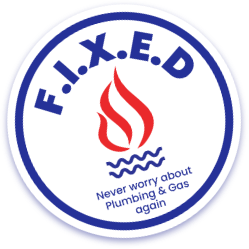A slow drain might not seem like a big deal, but it’s actually a ticking time bomb for your plumbing. If your sink, shower, or bath is taking longer than usual to empty, it’s a sign that a blockage is forming. Left untreated, you could end up with a completely clogged drain, sewage backup, and even pipe damage.
In this guide, we’ll explain what causes slow drains, the dangers of ignoring them, and how you can fix them before they turn into a major headache.
A slow-draining sink or shower isn’t just an inconvenience—it’s a warning sign that something is restricting the flow of water in your pipes. Here are the most common culprits:
In bathroom sinks and showers, hair is a leading cause of slow drainage. It tangles with soap scum and forms a web-like blockage that restricts water flow.
Pouring cooking oil or grease down the kitchen sink is a recipe for disaster. Over time, the grease hardens, sticking to the walls of your pipes and creating a stubborn blockage.
Soaps, shampoos, and conditioners leave behind a filmy residue that accumulates in pipes, especially when combined with hair and other debris.
Even if you have a garbage disposal, food particles and coffee grounds can accumulate and clog your pipes over time.
If your slow drains affect multiple areas of your home, tree roots could be the culprit. In Brisbane, tree roots are a common cause of blocked underground pipes, particularly in older homes.
Cotton swabs, dental floss, wipes, and other small objects that accidentally get flushed down the toilet or washed down the drain can cause gradual blockages.
A slow drain won’t fix itself. The longer you ignore it, the worse the problem will get. Here’s what can happen:
If you notice your drains are slowing down, take action before it becomes a full-blown blockage. Here’s what you can do:
A simple plunger can often dislodge minor clogs. Ensure you’re using a sink plunger for kitchen sinks and a toilet plunger for toilets.
A drain snake or auger can break up hair and debris lodged in the pipes. It’s an effective method for clearing bathroom and kitchen sink drains.
Harsh chemical drain cleaners can damage your pipes over time. Instead, try a baking soda and vinegar mixture, followed by hot water.
Sometimes, slow drains result from blocked plumbing vents. If multiple drains are slow, the issue might be with your venting system.
If DIY methods don’t work or the problem keeps returning, it’s time to call a plumber. A professional can use high-pressure water jets (hydro jetting) or a drain camera to inspect and remove blockages effectively.
A slow drain isn’t just an inconvenience—it’s a warning sign of a bigger plumbing problem. Whether it’s caused by hair, grease, or a tree root invasion, ignoring it can lead to costly repairs. Acting early can save you time, money, and stress.
If your drains are slowing down, don’t wait—address the issue now before it becomes a plumbing emergency.
